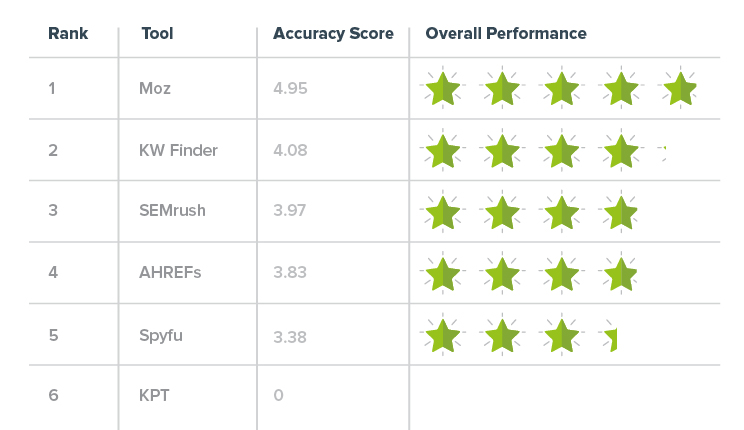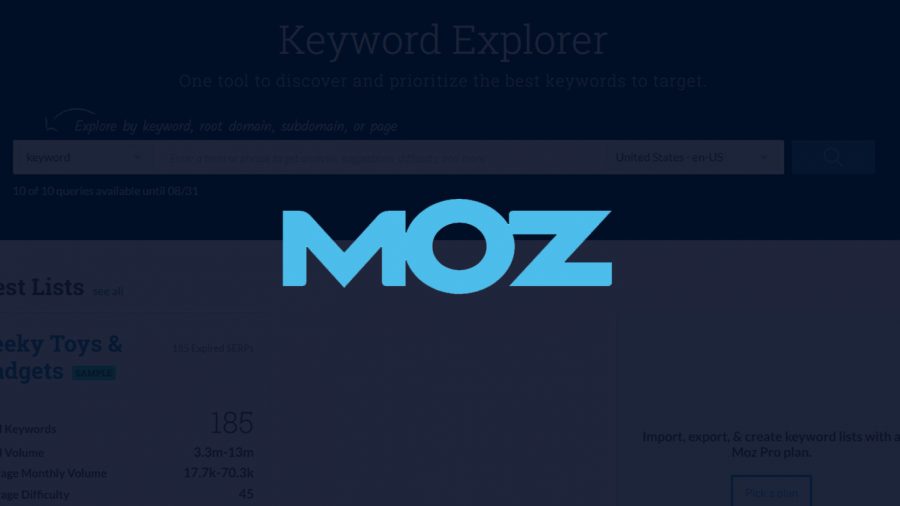News Courtesy of Moz.com:
Do keyword research tools actually work?
We use them every day, on faith. But has anyone ever actually asked, or better yet, measured how well keyword research tools report on the organic difficulty of a given keyword?
Today, we are doing just that. So let’s cut through the chit-chat and get to the results…

While Moz wins top-performing keyword research tool, note that any keyword research tool with organic difficulty functionality will give you an advantage over flipping a coin (or using Google Keyword Planner Tool).
As you will see in the following paragraphs, we have run each tool through a battery of statistical tests to ensure that we painted a fair and accurate representation of its performance. I’ll even provide the raw data for you to inspect for yourself.
To their credit, Moz does go very in-depth with the 3 tests that concluded their keyword research tool is the best. The goal of these tests is to determine each tool’s effectiveness at gauging their own organic keyword difficulty rating with actual keyword rankings. 50 blog posts with 50 targeted keywords were used for sample data.
While I’m partial to SE Ranking’s Keyword Research Tool, it only uses KEI (keyword effectiveness index) to gauge difficulty for ranking a keyword. That metric might be good for getting a generalized idea of difficulty, but in a real-world application, it isn’t going to offer much of an insight.
What I find interesting is that Google’s Keyword Planner Tool comes in dead last in these tests. Therefore, anyone using it to determine organic difficulty is going to have a hard time gaining any benefit from it. Two of the tools mentioned that I hold in high regard, SEMRush and AHREFS came in 3rd and 4th respectively.
Moz’s article is definitely worth a read if you’re shopping for a tool specifically to use for organic ranking difficulty. However, that is just one aspect to consider for keyword research. For its value of pricing and features, I’m still very much satisfied with SE Ranking.



